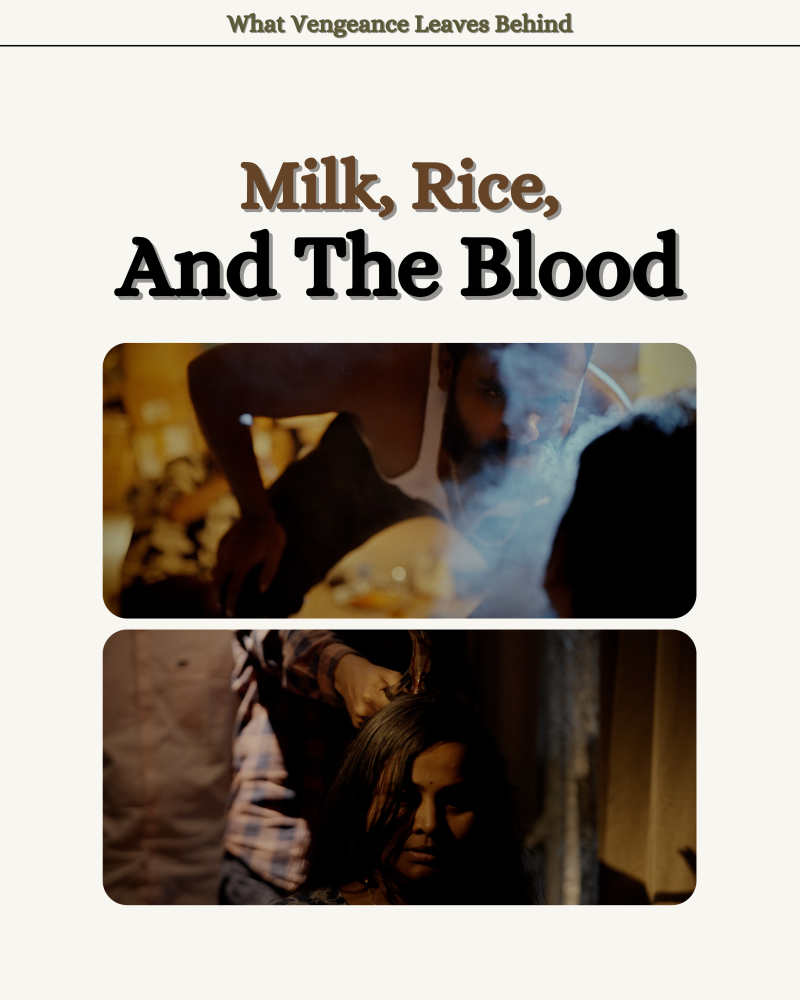Milk, Rice, And The Blood - Saurabh Doke | Runtime: 45 Minites | Genre: Revenge Thriller/Psychological Crime Drama | Country: India | Language: Hindi (English Subs)
Logline: After the mysterious death of his principled brother, a stoic young man journeys into a caste-fractured city, unearthing a quiet storm of cruelty, complicity, and consequence — where justice is neither triumphant nor clean, only inevitable.

There’s a moment midway through "Milk, Rice, and the Blood" where nothing is said, but everything is understood. It’s not a dramatic reveal or a stylistic flourish. It’s just a man standing still, surrounded by the aftermath of a decision. That stillness — not the violence, not the backstory — is the centre of this film.
Saurabh Doke’s directorial effort is lean, unadorned, and unapologetically focused. At just 45 minutes, the film offers no detours. We follow Siddharth, a man newly arrived in the city to find out what happened to his brother, Pradip — a kind, principled Dalit man whose sense of decency seems to have marked him for destruction. The story unfolds in fragments: present-tense confrontation interspersed with flashbacks that quietly reframe what we thought we understood.
Doke, who also plays Siddharth, refuses to perform emotion in a way that seeks our approval. There’s no speechifying, no manufactured moment of epiphany. Instead, his choices as an actor mirror the film’s choices as a whole — minimal, direct, and withholding. The restraint works. Because when the film eventually shows us what happened to Pradip, the absence of sentiment makes it hit harder.
"Milk, Rice, and the Blood" doesn’t brand itself as an issue film, and that’s to its credit. It doesn’t moralise, doesn’t offer an outsider’s view of caste violence as something exotic or theatrical. Instead, it keeps its focus tight — a brother searching, discovering, reacting. And through that simplicity, it sidesteps what so many others get wrong: the need to explain everything. Here, things just are. And it’s precisely that matter-of-fact tone that gives the film its quiet authority.
The revenge-thriller format is familiar, but Doke uses it as scaffolding rather than a blueprint. The usual mechanics — discovery, escalation, confrontation — are all present, but they feel subdued, more observational than engineered. There’s no climactic release. Just consequences.
Technically, the film is functional rather than flashy. The cinematography serves the story rather than calling attention to itself, and that’s the right choice. Nothing about this world is heightened. This is not a revenge fantasy. It’s a slow erosion. And what makes it unsettling is that Siddharth, even at his most violent, never feels heroic. He’s efficient. Controlled. But not free.
In the end, "Milk, Rice, and the Blood" doesn’t ask you to admire anyone. It doesn’t ask you to condemn either. It simply puts you in the room — with Siddharth, with Pradip, with the people who watched and said nothing — and lets you decide how you feel about what’s just happened.
Some films demand attention through scale or spectacle. This one does it by refusing to look away.
Available on Prime Video!
Add comment
Comments